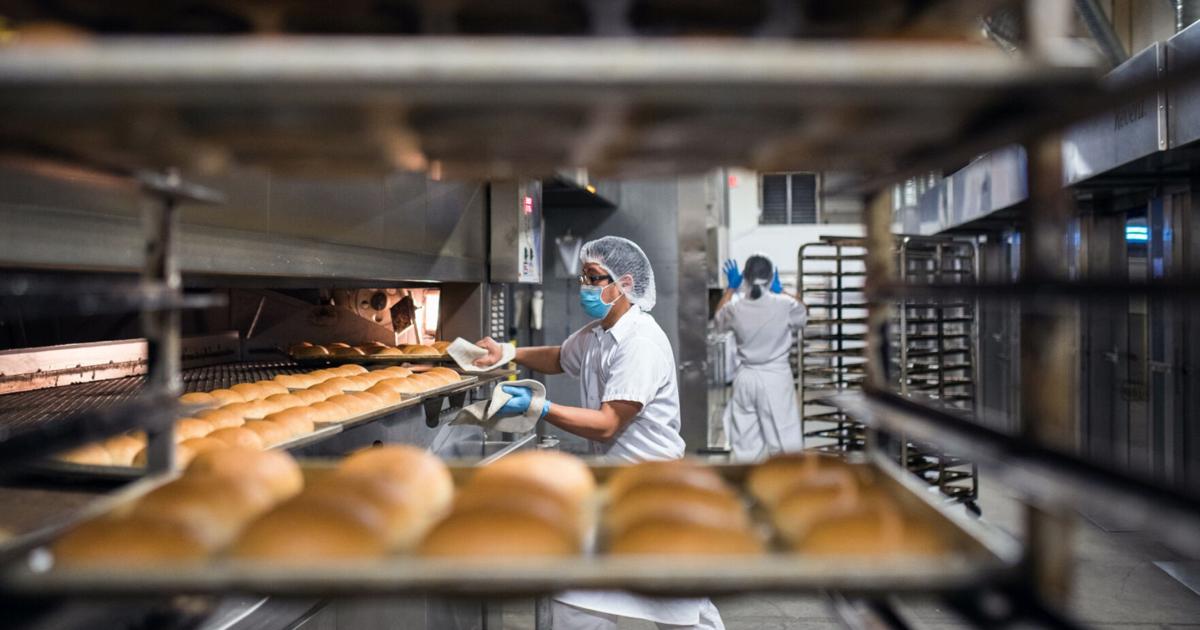International food items charges are surging at the speediest pace at any time as the war in Ukraine chokes crop materials, piling additional inflationary ache on buyers and worsening a world hunger crisis.
The war has wreaked havoc on offer chains in the very important Black Sea breadbasket region, upending world trade flows and fueling worry about shortages of essential staples these kinds of as wheat and cooking oils. That’s sent foods costs — which were previously surging right before the conflict started — to a history, with a United Nations’ index of planet fees soaring another 13% final month.
Ukraine’s ports are shut and quite a few vessels are staying away from the area, which accounts for about a quarter of all grains trade. Farmers in Ukraine, the top sunflower-oil exporter, are envisioned to significantly lower crop plantings and the country is battling to export provides by now harvested. Somewhere else in the world, substantial power and fertilizer prices are raising foodstuff-production fees, which is feeding by way of to even bigger grocery charges or threatening output.
The foodstuff cost rally is felt most in inadequate countries wherever groceries make up a huge share of buyer budgets — and the fallout from Russia’s invasion has sent fees of basic foodstuff like bread soaring. The United Nations’ Earth Food Programme a short while ago mentioned expensive staples in import-dependent Middle Eastern and North African nations are placing people’s resilience at a “breaking place.”
The surging expenses are spurring some international locations to keep off on imports, seek new suppliers or draw down community stockpiles, while that will not be a extended-time period resolve, stated Erin Collier, an economist at the UN’s Foods and Agriculture Group.
“It’s in essence kind of deterring demand,” she stated in an job interview. “That can only very last for so extended. Wheat is a staple food stuff.”
The FAO’s gauge of worldwide costs has jumped about 75% due to the fact mid-2020, eclipsing levels witnessed in 2008 and 2011 that contributed to global meals crises. Previous month’s surge aided rates round out a seventh straight quarterly gain, the longest this sort of operate considering the fact that 2008.
The UN has warned that costs could even now climb substantially extra.
Which is poor information for the world’s hunger challenge. Cost will increase stemming from the war and ensuing sanctions on Russia will — without motion — press much more than 40 million additional individuals into serious poverty, in accordance to an investigation posted very last thirty day period by the Center for World Advancement, a nonprofit think tank whose funders incorporate Bloomberg Philanthropies.
Aside from the food stuff-offer risks connected with the war in Ukraine, farmers close to the environment continue to contend with significant weather conditions activities and the impact of climate adjust. For case in point, the worst drought in many years is creating hundreds of thousands of livestock to die in the Horn of Africa, although worldwide warming is producing food items insecurity a lot more extreme in spots like Afghanistan.
The FAO elevated its outlook for international grain stockpiles — commonly a very good indication for materials — but said most of that is due to stranded grain in the Black Sea area. Ukraine’s exports will be specifically hard strike from the war, with wheat shipments falling 5 million tons and corn down 12.5 million tons from a former estimate. Freight and financing problems are also impairing Russian income.
The difficulties will also drag into the upcoming time. Ukraine planted its wheat months ahead of the war erupted, and the FAO expects at minimum 20% to go uncollected due to the fact of destruction, constrained access to fields or a deficiency of sources for harvests. Russian production could be impacted by problems importing agricultural inputs, it reported.
“Looking forward to 2022-23, we’re now looking at indicators that creation is going to be lowered in Ukraine,” Collier stated. “The amount of money they’re capable to export genuinely depends on how considerably lengthier this conflict proceeds.”








